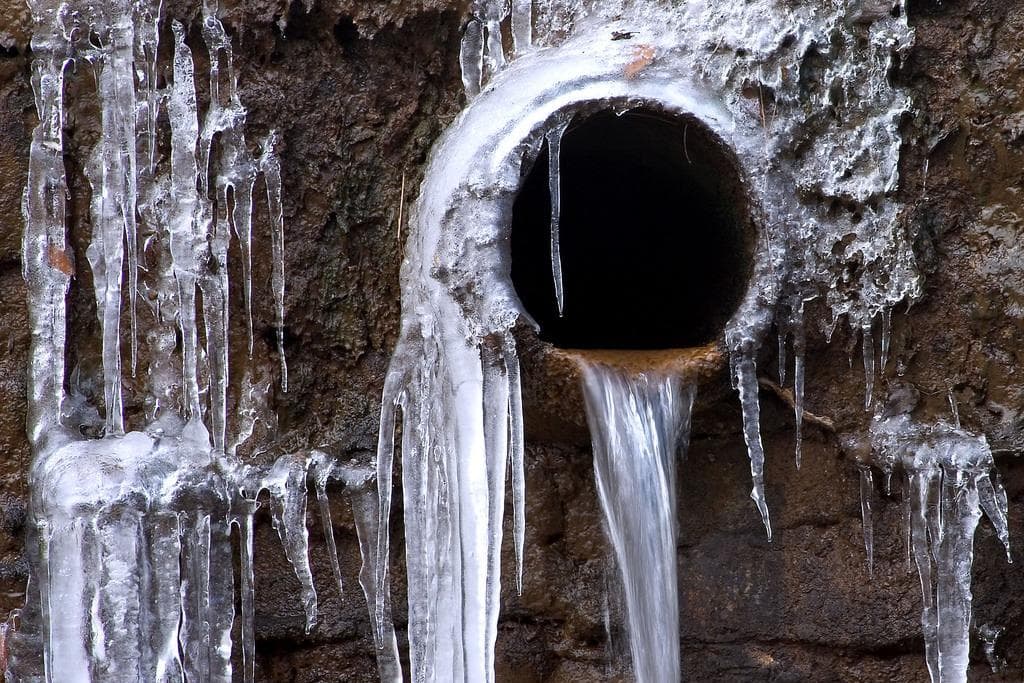The article in the next paragraphs in relation to How To Avoid Freezing Pipes is fairly entertaining. Read it for yourself and figure out what you think about it.

Winter can wreak havoc on your plumbing, especially by freezing pipes. Below's exactly how to avoid it from taking place and what to do if it does.
Intro
As temperatures drop, the danger of frozen pipes rises, possibly bring about costly fixings and water damages. Comprehending just how to stop icy pipelines is essential for house owners in chilly climates.
Avoidance Tips
Protecting susceptible pipes
Cover pipelines in insulation sleeves or make use of warm tape to safeguard them from freezing temperatures. Focus on pipelines in unheated or exterior locations of the home.
Home heating methods
Maintain indoor areas sufficiently heated, especially areas with pipes. Open closet doors to permit cozy air to circulate around pipes under sinks.
Exactly how to recognize frozen pipes
Try to find reduced water flow from faucets, unusual odors or sounds from pipes, and visible frost on subjected pipelines.
Long-Term Solutions
Architectural modifications
Take into consideration rerouting pipelines away from exterior walls or unheated locations. Include added insulation to attic rooms, cellars, and crawl spaces.
Updating insulation
Purchase high-grade insulation for pipelines, attic rooms, and walls. Appropriate insulation assists maintain consistent temperature levels and minimizes the danger of icy pipelines.
Shielding Outside Pipes
Yard tubes and outdoor faucets
Separate and drain pipes yard pipes before winter. Set up frost-proof faucets or cover outdoor taps with shielded caps.
Recognizing Icy Pipelines
What creates pipes to ice up?
Pipelines ice up when revealed to temperatures listed below 32 ° F (0 ° C) for prolonged durations. As water inside the pipelines freezes, it increases, putting pressure on the pipe walls and potentially triggering them to rupture.
Dangers and damages
Icy pipes can result in water system disturbances, residential or commercial property damages, and costly repair services. Burst pipelines can flooding homes and cause comprehensive structural damage.
Signs of Frozen Pipes
Determining frozen pipes early can avoid them from rupturing.
What to Do If Your Pipes Freeze
Immediate actions to take
If you suspect icy pipelines, keep faucets available to ease pressure as the ice thaws. Utilize a hairdryer or towels soaked in warm water to thaw pipelines gradually.
Conclusion
Stopping frozen pipes requires aggressive actions and quick reactions. By understanding the reasons, indications, and safety nets, house owners can shield their pipes throughout winter.
Helpful Tips to Prevent Frozen Pipes this Winter
UNDERSTANDING THE BASICS: WHY PIPES FREEZE AND WHY IT’S A PROBLEM
Water freezing inside pipes is common during the winter months, but understanding why pipes freeze, and the potential problems it can cause is crucial in preventing such incidents. This section will delve into the basics of why pipes freeze and the associated problems that may arise.
THE SCIENCE BEHIND FROZEN PIPES
When water reaches freezing temperatures, it undergoes a physical transformation and solidifies into ice. This expansion of water as it freezes is the primary reason pipes can burst. As the water inside the pipe freezes, it expands, creating immense pressure on the walls. If the pressure becomes too great, the pipe can crack or rupture, leading to leaks and water damage.
FACTORS THAT CONTRIBUTE TO PIPE FREEZING
Low Temperatures: Extremely cold weather, especially below freezing, increases the risk of pipes freezing. Uninsulated or Poorly Insulated Pipes: Pipes located in unheated areas, such as basements, crawl spaces, or attics, are more prone to freezing. Insufficient insulation or lack of insulation altogether exacerbates the problem. Exterior Wall Exposure: Pipes running along exterior walls are susceptible to freezing as they encounter colder temperatures outside. Lack of Heating or Temperature Regulation: Inadequate heating or inconsistent temperature control in your home can contribute to frozen pipes. PROBLEMS CAUSED BY FROZEN PIPES
- Pipe Bursting: As mentioned earlier, the expansion of water as it freezes can cause pipes to burst, resulting in significant water damage.
- Water Damage: When pipes burst, it can lead to flooding and water damage to your property, including walls, ceilings, flooring, and personal belongings.
- Structural Damage: Prolonged exposure to water from burst pipes can compromise the structural integrity of your home, leading to costly repairs.
- Mold and Mildew Growth: Excess moisture from water damage can create a favorable environment for mold and mildew growth, posing health risks to occupants.
- Disrupted Water Supply: Frozen pipes can also result in a complete or partial loss of water supply until the issue is resolved.
WHY CERTAIN PIPES ARE MORE PRONE TO FREEZING
- Location: Pipes located in unheated or poorly insulated areas, such as basements, crawl spaces, attics, or exterior walls, are at higher risk of freezing.
- Exterior Pipes: Outdoor pipes, such as those used for irrigation or exposed plumbing, are particularly vulnerable to freezing as they are directly exposed to the elements.
- Supply Lines: Pipes that carry water from the main water supply into your home, including the main water line, are critical to protect as freezing in these lines can affect your entire plumbing system.
- Underground Pipes: Pipes buried underground, such as those connected to sprinkler systems or outdoor faucets, can be susceptible to freezing if not properly insulated.
https://busybusy.com/blog/helpful-tips-to-prevent-frozen-pipes-this-winter/

I'm very taken with Helpful Tips to Prevent Frozen Pipes this Winter and I hope you enjoyed reading the new article. Sharing is nice. Helping people is fun. I cherish your readership.
Booking Page